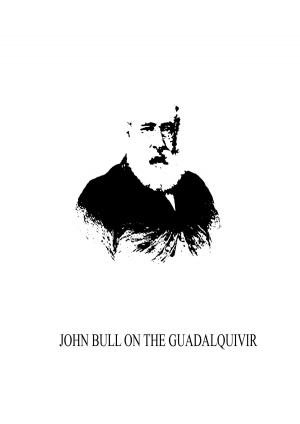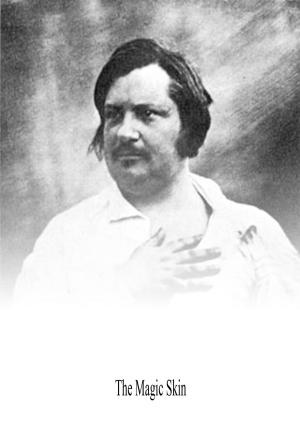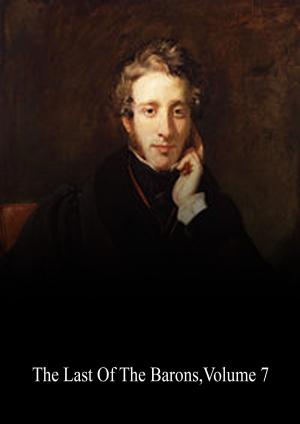| Author: | Sir Walter Scott | ISBN: | 1230000036881 |
| Publisher: | Zhingoora Books | Publication: | December 5, 2012 |
| Imprint: | Language: | English |
| Author: | Sir Walter Scott |
| ISBN: | 1230000036881 |
| Publisher: | Zhingoora Books |
| Publication: | December 5, 2012 |
| Imprint: | |
| Language: | English |
Christmas Summary Classics
This series contains summary of Classic books such as Emma, Arne, Arabian Nights, Pride and prejudice, Tower of London, Wealth of Nations etc. Each book is specially crafted after reading complete book in less than 30 pages. One who wants to get joy of book reading especially in very less time can go for it.
SIR WALTER SCOTT
The Antiquary
Sir Walter Scott was born in Edinburgh on August 15, 1771. As a child he was feeble and sickly, and very early he was smitten with lameness which remained with him through life, although he matured into a man of robust health. He was educated for the law, which he began to practise in 1792. Although he had fair success in his profession, he soon began to occupy his leisure time with literature, and his first work was published in 1796. The first of the "Waverley" series made its appearance anonymously in 1814. As the series progressed, it became known that Walter Scott was the author of the famous novels, and he became the idol of the hour. In 1820 a baronetcy was bestowed upon him. Six years later he joined an old friend in the establishment of a large printing and publishing business in Edinburgh, but the venture was not successful, and Scott soon found himself a bankrupt. Here his manhood and proud integrity were most nobly shown. With stern and unfaltering resolution, he set himself to the task of paying his debts from the profits of his pen. Within a space of two years he realised for his creditors the amazing sum of nearly forty thousand pounds, but the limits of endurance had been reached, and in 1830 he was smitten down with paralysis, from which he never thoroughly rallied. He died at Abbotsford on September 31, 1832. As a lyrist Scott especially excelled, and as a novelist he takes rank among the foremost. Although many of his works are lax and careless in structure, yet if a final test in greatness in the field of novel writing be the power to vitalise character, very few writers can be held to surpass Sir Walter Scott. According to Basil Hall, "The Antiquary" was Scott's own favourite romance. It was published in May, 1816, the third of the Waverley Novels, and in it the author intended to illustrate the manners of Scotland during the last ten years of the eighteenth century. "I have been more solicitous," he writes, "to describe manners minutely, than to arrange in any case an artificial and combined narrative, and have but to regret that I felt myself unable to unite these two requisites of a good novel." Scott took considerable pains to point out that old Edie Ochiltree, the wandering mendicant with his blue gown, was by no means to be confounded with the utterly degraded class of beings who now practise that wandering trade. Although "The Antiquary" was not so well received on its first appearance as "Waverley" or "Guy Mannering," it soon rose to equal, and with some readers, superior popularity.
Christmas Summary Classics
This series contains summary of Classic books such as Emma, Arne, Arabian Nights, Pride and prejudice, Tower of London, Wealth of Nations etc. Each book is specially crafted after reading complete book in less than 30 pages. One who wants to get joy of book reading especially in very less time can go for it.
SIR WALTER SCOTT
The Antiquary
Sir Walter Scott was born in Edinburgh on August 15, 1771. As a child he was feeble and sickly, and very early he was smitten with lameness which remained with him through life, although he matured into a man of robust health. He was educated for the law, which he began to practise in 1792. Although he had fair success in his profession, he soon began to occupy his leisure time with literature, and his first work was published in 1796. The first of the "Waverley" series made its appearance anonymously in 1814. As the series progressed, it became known that Walter Scott was the author of the famous novels, and he became the idol of the hour. In 1820 a baronetcy was bestowed upon him. Six years later he joined an old friend in the establishment of a large printing and publishing business in Edinburgh, but the venture was not successful, and Scott soon found himself a bankrupt. Here his manhood and proud integrity were most nobly shown. With stern and unfaltering resolution, he set himself to the task of paying his debts from the profits of his pen. Within a space of two years he realised for his creditors the amazing sum of nearly forty thousand pounds, but the limits of endurance had been reached, and in 1830 he was smitten down with paralysis, from which he never thoroughly rallied. He died at Abbotsford on September 31, 1832. As a lyrist Scott especially excelled, and as a novelist he takes rank among the foremost. Although many of his works are lax and careless in structure, yet if a final test in greatness in the field of novel writing be the power to vitalise character, very few writers can be held to surpass Sir Walter Scott. According to Basil Hall, "The Antiquary" was Scott's own favourite romance. It was published in May, 1816, the third of the Waverley Novels, and in it the author intended to illustrate the manners of Scotland during the last ten years of the eighteenth century. "I have been more solicitous," he writes, "to describe manners minutely, than to arrange in any case an artificial and combined narrative, and have but to regret that I felt myself unable to unite these two requisites of a good novel." Scott took considerable pains to point out that old Edie Ochiltree, the wandering mendicant with his blue gown, was by no means to be confounded with the utterly degraded class of beings who now practise that wandering trade. Although "The Antiquary" was not so well received on its first appearance as "Waverley" or "Guy Mannering," it soon rose to equal, and with some readers, superior popularity.
![Cover of the book The Antiquary [Christmas Summary Classics] by Sir Walter Scott, Zhingoora Books](https://www.kuoky.com/images/2012/december/500x500/1230000036881-i8B3_500x.jpg)

![Cover of the book The Modern Regime [Christmas Summary Classics] by Sir Walter Scott](https://www.kuoky.com/images/2012/december/300x300/1230000034848-5th0_300x.jpg)



![Cover of the book Wild Wales [Christmas Summary Classics] by Sir Walter Scott](https://www.kuoky.com/images/2012/december/300x300/1230000037124-tJWF_300x.jpg)




![Cover of the book The Prolongation of Life [Christmas Summary Classics] by Sir Walter Scott](https://www.kuoky.com/images/2012/december/300x300/1230000036280-Upbe_300x.jpg)



